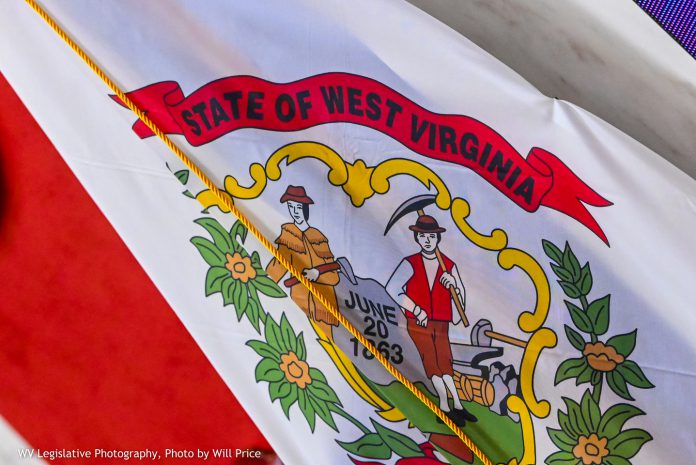
Someone once said the charm of history and its enigmatic lesson consist in the fact that, from age to age, nothing changes and yet everything is completely different. This could be said for the West Virginia Legislature
Since its first session in 1863, the Legislature has endured many changes, from drastic change in the number of legislative members to the complete rewriting of the West Virginia Constitution in 1872. However, the basic principles and ideals are still very much alive.
Members of the 1st West Virginia Legislature met June 20, 1863 at Linsly Institute in Wheeling to begin the newly formed state’s legislative session.
As directed by the adoption of the first West Virginia Constitution in 1862, 20 Senators were elected from the state’s 10 districts and 51 members of the House of Delegates were elected. Senators were to serve two-year staggered terms while the House served one-year terms. Some of those who were elected to the Legislature served as Delegates during the Wheeling Convention, which set in motion the secession of West Virginia.
Each member, under the Constitution, was compensated no more than $3 per day and 10 cents for every mile they traveled. The only exceptions to this were the Speaker and the President who were paid an extra $2 per day. According to the 1863 Acts, the Legislature appropriated $10,000 for the entire session.
After swearing in the state’s first governor, Arthur I. Boreman, the House and Senate moved to the next order of business, which was to elect officers. The House unanimously elected 70 year-old Dr. Spicer Patrick, a Republican from Kanawha County, to serve as the state’s first Speaker of the House. The Senate, after three votes taken, elected John M. Phelps, a Republican from Mason County, as Senate President.
Other positions filled during the first day of session by both chambers were House and Senate Clerks, Sergeant at Arms, doorkeepers and janitors. Both the Speaker and the President appointed two pages. Unlike today, pages then were teenagers or adults who were paid for their services.
After all officers of both bodies were elected, it was time to move onto the next order of business, which was the adoption of rules. Since this was the first meeting of a newly formed state, the West Virginia Legislature adopted the rules from the last Virginia House and Senate meeting. The 1863 Journal records the Legislature requested the governor to ask other states for copies of their statutes.
The first House Bill introduced related to the powers and duties of the Recorder. In the Senate, the first bill introduced would choose Commissioners of Emigration. One bill that was passed during the session defrayed the expenses of removing sick and wounded soldiers from hospitals and returning them back to West Virginia if the soldier or their family could not afford to do so on their own.
Two other bills would admit Berkeley and Jefferson counties into West Virginia. A total of 204 bills passed both chambers when the Legislature adjourned Sine Die on December 11, 1863. One month later, the 2nd West Virginia Legislature would convene but this time they would adjourn after 45 days as was written in the West Virginia’s first Constitution.
Numerous committees were also created, such as Elections and Privileges, Military Affairs, Forfeited and Unappropriated Lands, Claims and Grievances, and Humane and Criminal Institutions. There was also a committee on Seals, which would hire an artist to design the state’s official state seal. That honor went to Joseph H. Dis Debar, who would later serve in the House of Delegates.
The 1st West Virginia Legislature not only passed the state’s first bills but also received reports from various agencies on topics such as the navigation of the Ohio River and the building progression of the lunatic asylum in Weston.
Nine years later, in 1872, the Legislature would have its hands full once again as it was voted upon by the citizens of West Virginia to write a new, and the last, state Constitution.
Noted author David C. McCullough said, “History is a guide to navigation in perilous times. History is who we are and why we are the way we are.” It is important to remember West Virginia’s 1st Legislature and how they built the foundation to the state’s legislative process.

